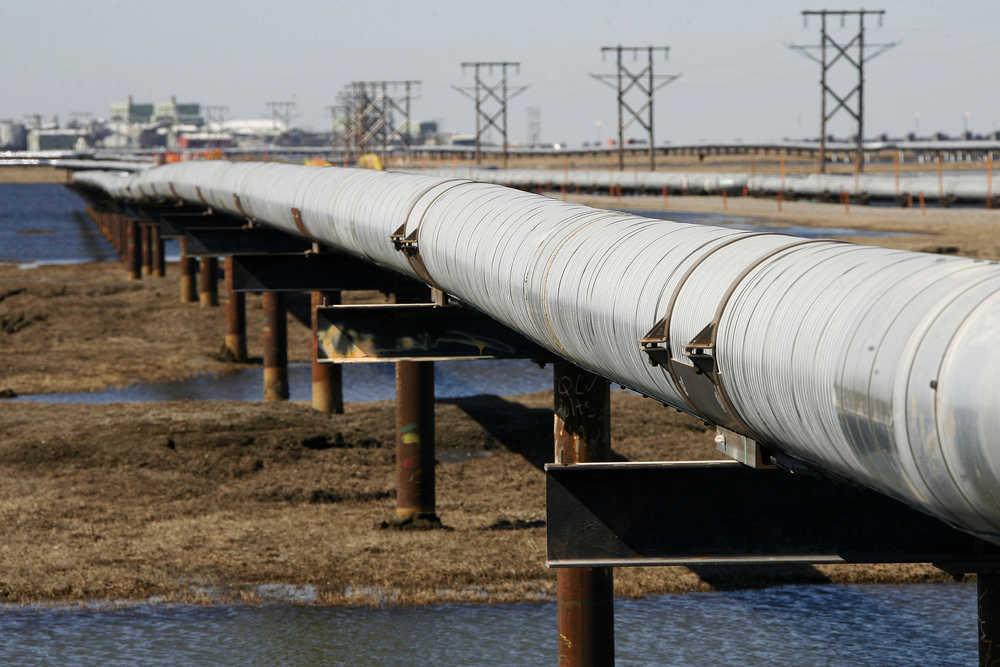Interior Secretary Sally Jewel reversed course and pulled Alaska’s Arctic waters from the latest federal outer continental shelf oil and gas leasing plan released Friday morning.
The final five-year OCS lease plan is the 2017-2022 oil and gas lease sale schedule for federal waters three to 200 miles offshore. It includes one Cook Inlet sale in 2021, but leaves out the large Arctic Beaufort and Chukchi seas, which were part of an earlier draft plan with one sale each.
The Interior Department estimates there are more than 23 billion barrels of oil and 104 trillion cubic feet of natural gas contained in the bedrock under the federal waters off the North Slope.
“The plan focuses lease sales in the best places — those with the highest resource potential, lowest conflict and established infrastructure — and removes regions that are simply not right to lease. Given the unique and challenging Arctic environment and industry’s declining interest in the area, forgoing lease sales in the Arctic is the right path forward,” Jewell said in a formal statement.
Bureau of Ocean Energy Management Director Abigail Hopper added the lease plan, which is dominated by 10 Gulf of Mexico sales, makes available more than 70 percent of the economically recoverable oil and gas resources in federal waters.
Environmental groups naturally hailed the decision, and equally as unsurprising, Alaska’s political leaders did not.
Gov. Bill Walker said in a statement from his office that he is very disappointed with the omission of Arctic waters. The state-supported plan balanced the concerns of the region’s subsistence users with Alaska’s overall need for economic development, which should have made for easy decision to include areas in the sale, according to the governor.
“With the Trans-Alaska Pipeline three-quarters empty, we must spur more oil production. When Alaska became a state, the federal government mandated that we live off our resources — but we must be able to access them,” Walker said. “My administration will reconvene with the whaling communities and industry to determine next steps.”
Alaska’s congressional delegation issued a lengthy joint statement accusing the Obama administration of ignoring the wishes the majority of Alaskans who support Arctic OCS development.
Sen. Lisa Murkowski said she is “infuriated” with the decision that she characterized as not only bad domestic, but also foreign policy.
“We have shown that Arctic development is one of the best ways to create jobs, generate revenues and refill the Trans-Alaska Pipeline. Why the president is willing to send all of those benefits overseas is beyond explanation. And it is even more stunning that just one day after urging the new administration to stand up to Russia, he continues to cede leadership on Arctic energy production to them. I will do all that I can to counteract this shortsighted decision,” Murkowski said.
Sen. Dan Sullivan and Rep. Don Young said the announcement lends credence to the belief that the administration supports environmental interest groups more than its own purported “all-of-the-above” energy policy.
“Let’s hope that this is the final chapter in the Obama administration’s harmful legacy of putting the interest of anti-energy activists over those of hard-working Alaskans and their families,” Sullivan said. “Our state and country still have a promising future in responsible resource development. I am hopeful that with the incoming Trump administration we will be able to reach our potential as a state and nation in this important area.”
Arctic Slope Regional Corp. issued a statement Friday saying it is also disappointed in BOEM’s decision, contending it disregards the economic health of North Slope communities and damages the Alaska Native-owned corporation’s ability to benefit its shareholders as mandated by the 1971 Alaska Native Claims Settlement Act.
ASRC also noted that it recently purchased federal leases in the Beaufort Sea formerly held by Shell.
Specifically, the OCS lease plan has one Cook Inlet sale because the basin already contains significant oil and gas infrastructure in state waters that would likely support any activity in the federal waters at the mouth of the Inlet to the south, according to the plan document.
As for the Arctic, it cites the fact that the number of active federal Arctic OCS leases has dropped from 527 in February to just 43 currently — an indication of declining industry interest in the extremely prospective but high-cost region as oil and natural gas prices remain low.
It also notes that Shell’s exit from the Chukchi Sea last year further indicated industry’s declining interest in the region.
“Although the Arctic OCS has the potential to provide domestic energy production when economic conditions are considerably more favorable, the increase in domestic onshore production from shale formations, and other market factors, have shifted expectations regarding oil and gas price trajectories and have substantially reduced the incentive for expensive Arctic exploration and production,” the plan states.
In July BOEM issued a more stringent set of Arctic drilling regulations for mobile drill rigs that the agency estimates could add $2 billion in compliance costs over 10 years.
ConocoPhillips and Shell both relinquished their federal Chukchi leases off Northwest Alaska earlier this year.
Last September Shell announced it was pulling out of the Chukchi after an unsuccessful, controversial and incredibly expensive multi-year exploration program.
The Dutch oil giant said it spent nearly $7 billion to end up drilling just one dry well in the Chukchi. While Shell had self-induced problems in its Arctic program, the company said complex and burdensome federal regulations hindered its progress.
Elwood Brehmer can be reached at elwood.brehmer@alaskajournal.com.

